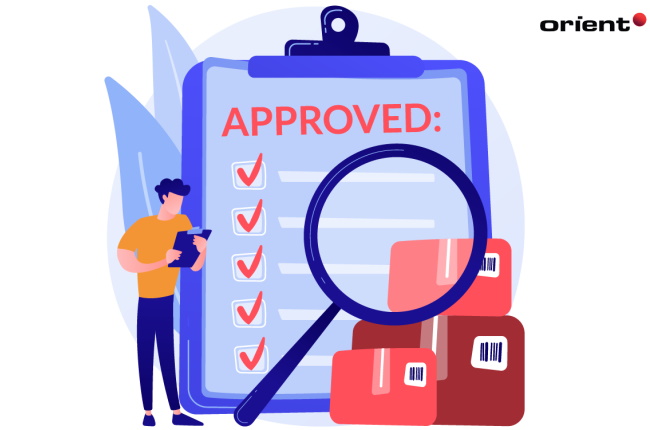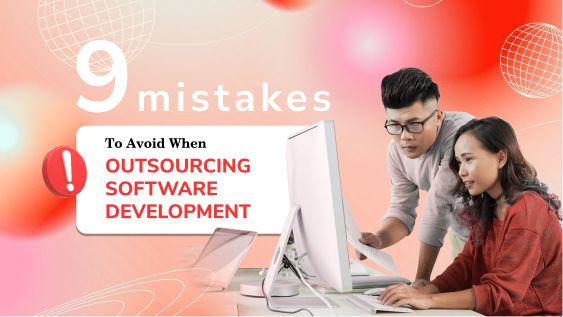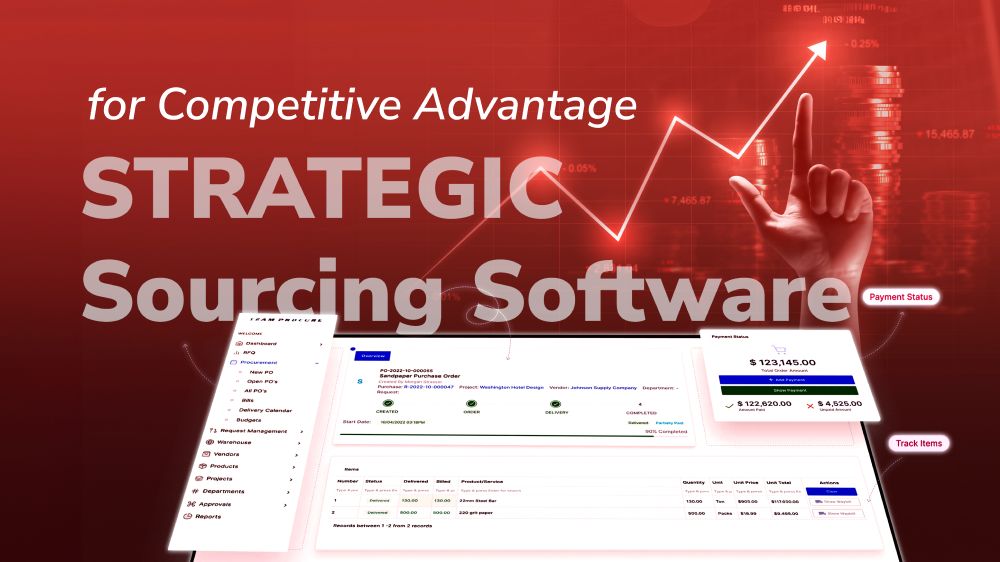Don’t Miss Out on These Outsourcing Best Practices

Content Map
More chaptersCongratulations! You and your team were chosen for a new software development projects!
Now comes the next important question - how do you want to go about developing the project? Will you utilize the in-house team, hire freelancers, or check out the outsourcing market?
One of the most popular solutions is to look for an outsourcing provider. With the right outsourcing partner, there are plenty of benefits to enjoy. But first, you need to make sure that you know all outsourcing best practices.
This article will take you through everything you need to know about the best practices to best execute your outsourcing project, including some helpful outsourcing engagement models.
Why Follow Outsourcing Best Practices?
Outsourcing has quickly become a common solution to implementing company projects.
First, the right outsourcing service provider allows you to skip the entire costly and time-consuming process of recruiting, interviewing, onboarding, training, and maintaining a software development team for the project. You and your company jump straight to the execution phase with a team of proven professionals.
Next, an outsourcing project gives your business access not only to the huge talent pool with technical expertise in the field, but also to the newest technologies.
Third, the right outsourcing service provider gives your team the time and space to focus on the business’s core competencies. The in-house team is given the opportunity to invest more in true value-driven operations and relationships.
Last but not least is the accelerated time to market. The sooner your product is launched, the sooner it brings back revenue. A project’s success also increases the chance of a higher market share for your company.
In short, your company stands to gain a competitive advantage in today’s increasingly crowded market. Read on to find out about the outsourcing best practices we have gathered over the years. We also offer numerous outsourcing tips and strategies if you wish to read more about this topic.
Must-Know Outsourcing Practices
After knowing all the whys, it is time to move on to the how of an outsourcing project:
- How do you reach your outsourcing objectives?
- What are the outsourcing best practices?
- How do you have the outsourcing services play to your strengths?
We answer these questions below.
Clearly identify your outsourcing objectives
Before any project begins, try to understand what it is that your business wants first.
- What are the requirements?
- What are the business goals?
- How do you align the business objectives with the outsourcing goals?
Be as specific as possible. Project success does rely a lot on a comprehensive plan and people who know exactly what they want. This especially is true when it comes to an outsourcing project. Transparency about your expectations and limits helps your outsourcing provider to better plan and allocate their resources. Include the following information in your plan:
- Objectives
- Budget
- Timeline
- Essential skills
Shortlist and compare suitable outsourcing service providers
Search for outsourcing vendors and you will find thousands of them online. Once you have managed to shortlist them down to a handful, here are the criteria with which you can confidently pick the winner:
Company’s credibility
Look for businesses that can provide you with previous case studies of their successful projects. The case studies should demonstrate the type of businesses, project goals, or challenges similar to yours.
This shows their relevant industry experience, with an emphasis on ‘relevant’. Chances are your shortlisted providers all claim to be industry experts. But industry expertise is wide, so favor the ones most relevant to your needs.
Domain expertise
No two industries look the same. Choosing an outsourcing provider who knows the ins and outs of your target industry, since they are familiar with handling the expected, and unexpected, roadblocks. Quiz them on the industry-standard requirements, processes, regulations, and compliance.
Technical expertise
Check if they are proficient in a variety of tools and technologies. This is often a sign of a high-quality outsourcing service provider who can go the distance for you.
HR and team support
Downsizing and upsizing are some of the best benefits of outsourcing. Make sure your shortlisted vendors have the capacity to get the right people on board, and adjust team size and roles as needed.
Of course, also check their conditions relating to this, and find a compromise. They are also a company that needs to provide a livelihood for their employees, even when they are made temporarily redundant for your project.
Careful quality checks
If you are new to the ISO standards in software engineering, then your chosen vendor should be able to explain clearly to you how it sets the global standards for quality management. This is a layer of quality assurance for your project.
Establish strict service level agreements in your outsourcing contracts to ensure all parties’ data security is responsibly managed. Ask them to describe the measures they have in place to enforce adherence.
In fact, your outsourcing company should be thrilled to boast how they have met international standards and stay competitive.
Set up communication channels that work for your in-house team
The lack of communication is one of the biggest problems when it comes to your relationship with your outsourcing providers. Establish clear communication channels at the beginning of the project, and make sure all stakeholders are involved in their regular meetings.
Their project management approach determines how much communication is needed, so if you are unclear, ask them for more details. Focus specifically on how much involvement is expected from you. It is better to over-communicate than to make assumptions about the other party.
Utilize outsourcing engagement models to keep you ahead of the game
An engagement model is a strategy that determines how you and your chosen outsourcing vendor interact during the course of your outsourcing project. In a sense, the phrases “engagement model”, “price model”, or “business model” have come to mean the same thing since it also specifies how payments are to be handled.
Choosing the right outsourcing engagement model is the first step toward many successful software projects. Choosing the right one means you get the best value for your money, significantly raising the likelihood of a successful outcome, with a product that delivers a long-term return on investment.
Here are the most common outsourcing models.
Fixed price
You set a fixed price for the project and often do not pay more than that. This model is one of the more classic approaches toward outsourcing software development.
Since everything about this model is fixed, the software development process requires a lot of advanced preparation. You and your team must plan every single detail out. All stakeholders work with the detailed plan drawn out before the project starts.
During the execution phase, you cannot change anything without going through cumbersome processes of modification. The lack of scalability may be why this model is not preferred today, despite its previous popularity.
Dedicated team
If you have a big and long-term project, the dedicated team model is for you. Simply put, you quite literally “rent” a whole team from your outsourcing partner - including project managers, developers, QA engineers, designers, and whoever else is needed. You pay a monthly fee to your outsourcing provider.
It is an appropriate model if you wish to have full control over a team without going through the process of recruiting and training. The catch here is that you need to be highly involved, making sure the software development process is moving at the expected pace.
The dedicated team model of outsourcing software development is considered safe in the fintech field, as it allows your business to quickly adapt to changes in the market.
Time and material
If you are looking for an outsourced software development team that can meet the fast-changing demands of your industry - then this model is for you.
This model is based on the notion that stakeholders cannot afford a large project. They rely on the developers for a few months or even years, with the assumption that the market will not wait for the completion of the product. This is mainly because the market is evolving too fast.
With the time and material approach, you, the client, are regularly involved in the project: you decide which features need to be focused on, then your outsourced team works on it.
A downside to this approach, however, is you need to deal with budget flexibility instead of budget predictability.
The Right Outsourcing Service Provider Makes All the Difference

It may be impossible to ask for ‘the best’. It is wiser to expect that you will have to adapt these best practices to the specific real-world limitations of your project. Budget, time, requirements, and markets are some of the factors that will shape how your project will go.
Keep these best practices close to your agenda, but do not insist on them except when it is absolutely necessary. And how do you know that? A balance between intuitive and rational decision-making will show you how.







